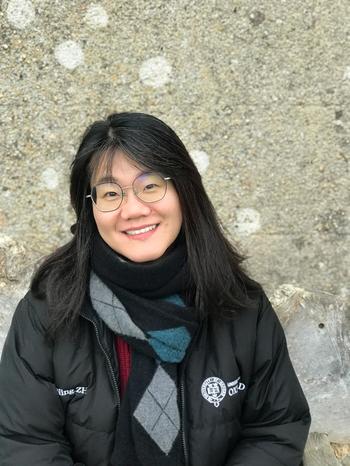Dr. Ning Zhang

Fellow in the project "Conceptions of World Order and Their Social Carrier Groups“ (Fall 2025)
Short Biography
I am a Research Associate at the Oxford School of Global and Area Studies and the SOAS Centre for Southeast Asian Studies. As a historian specialising in modern Chinese political and social history, my research examines the Chinese Sent-Down Youth Movement, Maoist world revolution, and China’s transnational engagements with Southeast Asia during the Cold War.
Broadly, my work investigates how individuals sought to survive and make sense of their lives amid the shifting and continuous revolutionary dynamics of modern China. I pay particular attention to the interplay between everyday life, emotion, and ideology, using personal archives and oral histories to uncover how ordinary people lived, felt, and believed in times of profound political transformation.
From 2022 to 2024, I held a Newton International Fellowship funded by the British Academy at the University of Oxford for the project “Chinese Sent-Down Youths and the Burmese Communist Movement (1968–1989).” During this fellowship, I conducted extensive fieldwork and oral history research and developed a subproject on “The Southeast Asian Communist Children,” which explores the experiences of children who grew up in China during the Mao era.
Project
The Children of Southeast Asian Communists and the Maoist World Revolution (1950s–1980s)This research explores the experiences of children from Southeast Asian Communist Party families who were raised in Maoist China. Educated in Chinese schools and immersed in Maoist ideology, many later returned to their home countries to participate in armed struggles. The study examines how Maoist China functioned as both a refuge and a site of ideological formation for the children of Communist cadres from Thailand, Malaysia, Cambodia, Burma, and beyond.
Drawing on oral histories, personal archives, and visual materials, the project seeks to reconstruct these children’s transnational trajectories and to understand how political, emotional, and familial worlds intersected in the making of revolutionary subjectivities. Rather than advancing a fixed argument, the research investigates broader questions of belonging, identity, and the lived dimensions of socialist internationalism in Cold War Asia.
Methodologically, the project integrates oral history and ethnography with historical and political analysis, paying close attention to the ethical and emotional challenges of conducting research in contexts where archives are politically sensitive, fragmented, or inaccessible. By foregrounding these intertwined lives and affective networks, the study contributes to emerging conversations on the global history of Maoism, transnational socialism, and the legacies of ideological education and kinship across borders.
